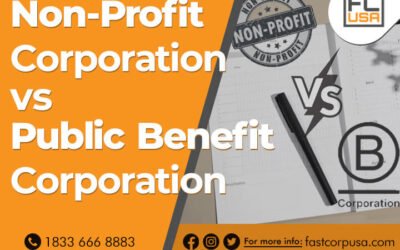Sole Proprietorship means in a business there is only one owner and he has all the liability of the business. Sole liability itself is a big term because a person has to manage everything all alone. A few factors of it are no holidays, limited capital and investment with poor management.
Therefore, this article will enlighten all the disadvantages that a sole proprietorship has to face. When starting a business, they can consider it and then choose accordingly to whether go for sole or partnership.
What is Sole Proprietorship and How Does it Work?
In the U.S. sole proprietorship is the most common structure of business. 70% of businesses operate as sole ownership with no entity. It is a type of business and organisation which can be run single-handedly.
Sole Proprietorship is different from LLC, C and S corporations as they don’t have to get registered with the government. Therefore, they contain no filing fees like corporate taxes, insurance and licensing. Also, there is no need to file the articles of incorporation like paperwork. Consider an individual as an investor, a board of directors, an officer, or sometimes even a labourer, running the business entirely by himself.
All the decision-making, action, or responsibility of growing his business depends upon him, from gaining profit to paying taxes; everything in the business starts and ends with him. It has a 100% share of profits and complete control under one person. But everything that glitters is not gold. Besides having many benefits, there are many drawbacks as well that sole proprietor has to face.
Eight Disadvantages of Sole Proprietorship
Being a sole proprietor, there is no separate border between your personal and organizational setup. All business credits and liabilities are your personal responsibility. And if you fail to fulfill your liabilities you will be sued for it and may be lead to lose your personal assets too.
1- Small Capital
In a sole proprietorship, even though the cost to start a startup is lower since the business is limited to only one person’s investment, the capital of this business may not be larger. Because there will be only one investor and no other company or shareholder is involved in the company.
Additionally, banks prefer to be favourable to only well-established businesses in companies where they generate higher revenue. While in sole proprietorship, the business depends entirely on a single person’s financial statement and business credit history. So, the banks and lenders don’t easily issue loans to such individuals because they doubt that there is a chance of not getting the repayment.
2- Unlimited Liability
Every loan that the owner takes either for business or for personal purposes will not just limited to the business, but it will become a private liability. Because, being a sole proprietor, there is no legal separation between the business and the owner.
In simple terms, a court will have a record of all your assets and if the business incurs losses and the owner is unable to pay off the debts using the business’s assets, then the government has the authority to easily take the owner’s personal property or assets.
For example, their house, car, savings, etc will be under the government’s control. The bank holds the power to seize the owner’s personal assets in case of improper tax submissions.
3- Unstable Business
The life of a business entirely depends upon the performance and efforts of the owner. If anything happens to the owner, it will somehow impact the business. If the owner at any point is unable to handle the business by himself, he has to end it right there.
For example, in any case, if the owner goes insane, is badly injured, enters a coma, or experiences other conditions that render them mentally unstable, the business can no longer stay. Additionally, if the owner dies, the business gets buried with him.
However, even a minor factor, like the owner being in a demotivated or undisciplined state and not wanting to work this week, this slight reason can also bring the business to an end. This explains the delicate balance between the owner’s well-being and the business’s life.
4- Limited Experience.
Unlike companies where a bunch of experienced and skilled professionals form a cohesive group together and work to grow the company. The business then flourishes rapidly when numerous talented people with diverse experience collaborates.
Unfortunately, this can not happen in sole proprietorship because it is limited to the mindset, knowledge, and experience of only one person. In an environment where there are many other competitors, it becomes very difficult for the sole proprietor to fight with the bigger fish in the pool.
5- No Holidays
Sure, the sole proprietor can have a day off, but that actually means massive loss and regret for many days. Being a sole proprietor might sometimes upset your family and make you frustrated.
For instance, if you are a shareholder in any company and have an emergency like sickness or need a day off to spend time with your family or for any other reason. You can easily discuss with your company partners and postpone your meetings and discussions without any hassle or without worrying about what will happen to the company without you.
But the problem in sole proprietorship is that you are the boss. While there is no one to stop you from enjoying your life, there is no one who will bear the responsibility of recovering your potential loss. You have to be present no matter what your condition is and how much tired you are.
If you own an LLC, you can convert it into a corporation. Learn how to convert LLC into C-corp.
6- Mis-Management
It is humanly impossible for one person to look after everything. No matter how proficient the owner is, he would probably lack in some areas because one person can’t be able to handle everything. However, these challenges extend beyond the skills of the owner. Sometimes, the problem also occurs in financial hurdles as well.
Some reasons can be because of the owner having a messy and unclear bookkeeping record or struggles to hire a competitor’s in-house bookkeeper. Corporations can use corporate kits for the maintenance of documents but, sole proprietors lack them. Even minor reasons like these can lead businesses to mismanagement, resulting in employees quitting jobs because of dissatisfaction and losing customers or clients as well.
7- Day-to-day Decision-Making,
Unlike the shareholder of a company who is relieved from the stress of making every decision, as the board of directors takes care of that responsibility, and in a partnership where one partner can rely on the other for decision-making, the sole proprietorship is quite the opposite.
A sole proprietor has to make every decision by himself. If the business faces an unbearable loss because of the wrong decision of the owner, there is no one else responsible for that instead of the owner; all he can do is regret it or think of making another decision to fix that.
8- Solo Tax and Expense Responsibility
Similar to how the solo owner enjoys the 100 per cent profit in a sole proprietorship business, he is obligated to pay the 100 per cent tax as well. Since there are no other partners of shareholders to distribute that, the sole proprietor has to bear all the expenses, carry all the losses, and settle all the taxes alone, which is quite burdensome.
Whereas, there is a proper U.S. tax filing system for C-corp, S-Corps and LLC businesses that leads to their proper maintenance.
Conclusion
Being a sole proprietor is all about being independent, having 100% profit, and less paperwork; it has some drawbacks as well, like limited capital with unlimited liability, debts and tax burden, uncertain business, mismanagement, and pressure of day-to-day decision-making.
Sole proprietorship businesses are almost impossible to establish at a larger pace as compared to companies and partnership firms. A sole proprietor doesn’t have as many facilities and advantages as much as a shareholder of a company has including the absence of legal status.
The business’s life wholly depends upon the owner’s capabilities to balance his personal life with his business life. Aspiring entrepreneurs must weigh these factors carefully when deciding to start a sole proprietorship business.
FAQs
Q1. Is it possible to increase capital in sole proprietorship?
Yes, it is possible to increase the capital, but it becomes very challenging and almost impossible for a single person to invest in a business alone.
Q2. Can a sole proprietor add a partner to his business?
If a sole proprietor adds another member to his business, it will no longer be classified as a sole proprietorship but will become a partnership business. However, a sole proprietor has the flexibility to hire employees in any department to reduce the workload.
Q3. Does a sole proprietorship business have a legal status
No, since the business is limited to the ownership of one person only, it doesn’t receive any legal status.
Q4. By comparing company, partnership firm, and sole proprietorship, which one generates more profit?
When it comes to generating profit, companies typically rank at the top due to their larger capital of many investors, followed by partnership businesses, and lastly, sole proprietorships. However, when considering the profit distribution ratio, the order is reversed. The sole proprietor receives the entire profit, followed by the partnership, and finally, the company.





0 Comments